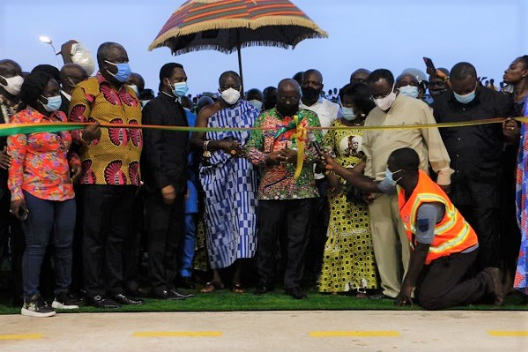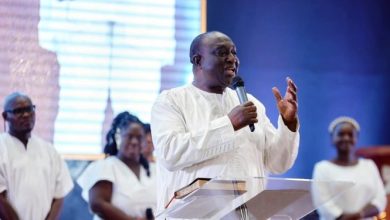Life StyleNews
President commissions $95m recycling plant – creates 2,300 jobs

The President, Nana Addo Dankwa Akufo-Addo, has commissioned an Integrated Composting and Recycling Plant at Adagya in the Bosomtwe District in the Ashanti Region.
The $95-million plant, with a capacity to convert 2,400 tonnes of waste material into by-products daily, has been touted as one of the biggest in Africa. The Kumasi metropolis alone generates 1,200 tonnes of waste daily.
The recycling plant is situated on a 150-acre land and will treat solid and plastic waste from the Kumasi metropolis and adjoining districts into reusable materials and organic products.
The facility also has the capacity to produce 3,000 bags of organic fertiliser daily to support farming in the country.
The $95-million automated plant, financed with a loan facility from Zenith Bank, will sort the waste into the various materials such as paper, metal, organic, glass and plastic, and convert them into raw materials for industrial use.
When fully operational, the plant will create employment for 2,300 people, 800 directly and 1,500 indirectly.
Largest
President Akufo-Addo said the project was the largest in Africa and Ghana.
He said the government remained committed to public, private partnership in waste management and commended the Jospong Group for investing in waste management and also creating jobs for the people of the Ashanti Region.
The high profile event was performed on the second day of the President’s tour of the Ashanti Region.
He also thanked the Hungarian government for partnering Zoomlion Ghana Limited to construct the integrated plant, which had a 90 per cent recovery rate and, therefore, served as a major boost to the national economy and that of the Kumasi metropolis.
President Akufo-Addo also commended the Asantehene, Otumfuo Osei Tutu II, for releasing a large parcel of land to the company to put up the plant.
He tasked all metropolitan, municipal and district chief executives (MMDCEs) to collaborate with the company in its operations and also charged the Ministry of Sanitation and Water Resources to see to the completion of all 16 such projects across the country.
The President reiterated his call on residents to follow the coronavirus disease (COVID-19) safety protocols and added that the pandemic was not yet over, although the recovery numbers were quite encouraging.
Gratitude
The Executive Chairman of the Jospong Group of Companies, Mr Joseph Siaw Agyapong, expressed gratitude to Ghanaian governments, past and present, for the support extended to him over the years he started off as a local business.
He said that support had enabled the company to survive and also to expand to other parts of the country.
Mr Agyapong said efficient and effective waste management was the way to go to reduce the pressure on landfill sites and make more land available for development.
He said the plant could recycle 90 per cent of the solid waste generated locally and there were plans to turn the 10 per cent residual waste into energy.
Research centre
Mr Agyapong said the facility had also been adopted by the Kwame Nkrumah University of Science and Technology (KNUST) as a research centre for recycling and an academic tourism centre.
He said research had shown that COVID-19 could survive in plastic waste for five days, on wood for four days, paper for four days, as well as on glass, hence the need to recycle these materials for other uses safely.
The plant also comes with a restaurant, a clinic, cafeteria, lecture halls, administration block, a conference hall and other auxiliary facilities.
Challenges resolved
The Ashanti Regional Minister, Mr Simon Osei-Mensah, said when the government took over the helm of affairs, Kumasi was bedevilled with two major problems — bad road network and sanitation issues but said in terms of road infrastructure a lot had been achieved.
The second challenge, which was sanitation, he said, had also received a major boost through the commissioning of the compost and recycling plant aimed at processing solid waste into plastic, fertiliser and other reusable products.
Source:Fiilafmonline/Graphic



